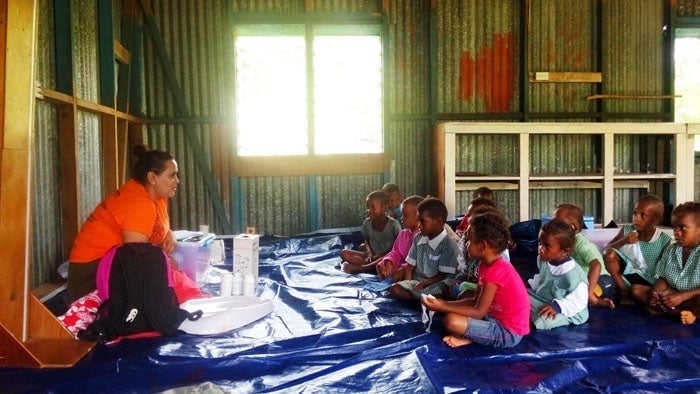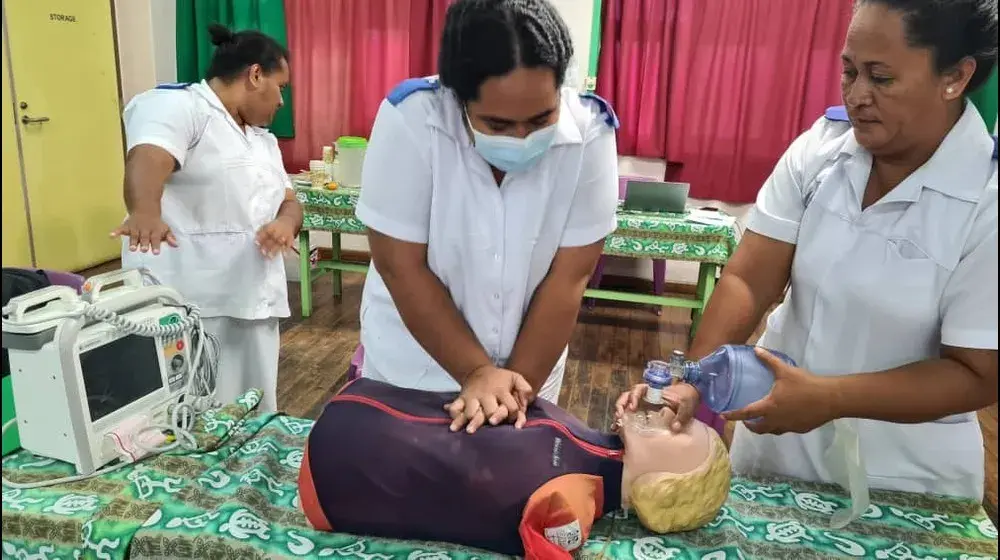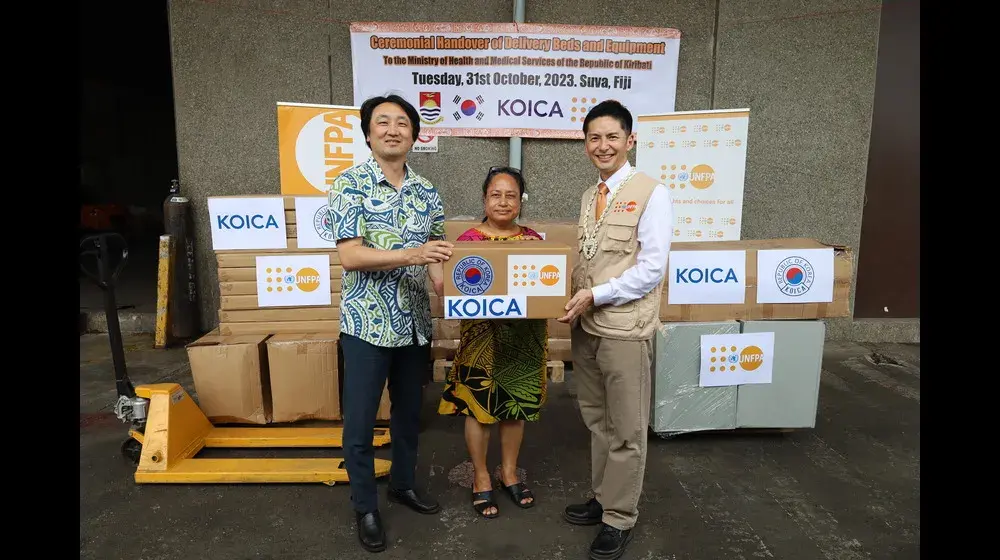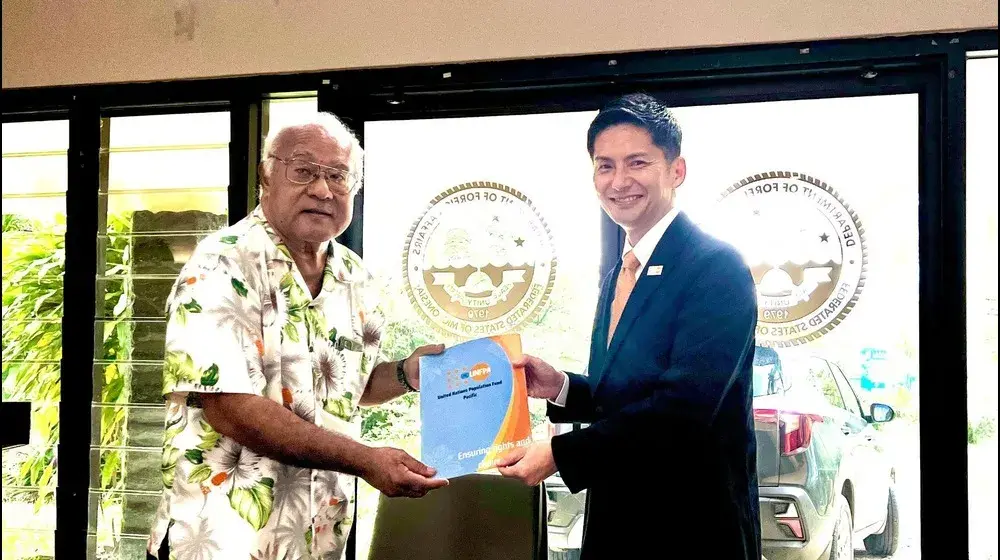DELIVERING essential health packages including sexual and reproductive health services on horseback or having to wade across rivers twice to reach a particular village has all been part of an eight-week mobile clinic outreach exercise, supported by the United Nations Population Fund, UNFPA.
"We were carrying a hospital with us, although we were only four," retired midwife Kasanita Naioko, 56, said about the experience, which was part of the Ministry of Health and Medical Services' health response post-Cyclone Winston.

Ms Naioko is originally from Bukuya which is in the heart of the main island of the Fiji Group, Viti Levu. Also a nurse practitioner, Ms Naioko said regardless of the rain and cold of the mountainous terrain they had to live in for four weeks, it was all worth the effort.
"We had all the time in the world to sit with the communities we visited, disseminating information we felt they needed to be aware of considering the circumstance; I was able to do 77 Pap smears in four weeks," she said with a huge smile.
"That is a big number for iTaukei communities as we tend to be reluctant to come forward for these things but if we have the time to explain things and answer their queries, most are very open to our advice.
"In Drala village, there was a twin pregnancy, 30 weeks but because of the condition of the road and also financial constraints, she had not visited a medical facility so we prepared her and took her to Lautoka Hospital - her husband and family, and her - they were so happy that we were able to do that."
Ms Naioko who retired three years ago said she would recommend the mobile clinic outreach program continue, seeing how it met needs of those who simply could not make it to health facilities.
"There are many of us who can come back and contribute to outreach services like this … if we have time to sit with them and counsel them on the various health services available for them, I am sure Fiji will get the results it wants from public health," Ms Naioko said.
Of the villages reached during the exercise, Ms Naioko's team recorded 210 malnutrition cases of children up to five years old; there was improvement however on the return trips specifically to check on cases which required follow-up; dietitians were part of the outreach teams.
Apart from completing 77 Pap smears (12 of whom were having it for the first time), Ms Naioko's team alone recorded 17 new cases of women choosing family planning; six were able to continue their choice of contraceptive; a total of 12 pregnant women were covered and 45 lactating mothers. All trips distributed dignity kits - which are specifically packed to meet the unique needs of women and girls.
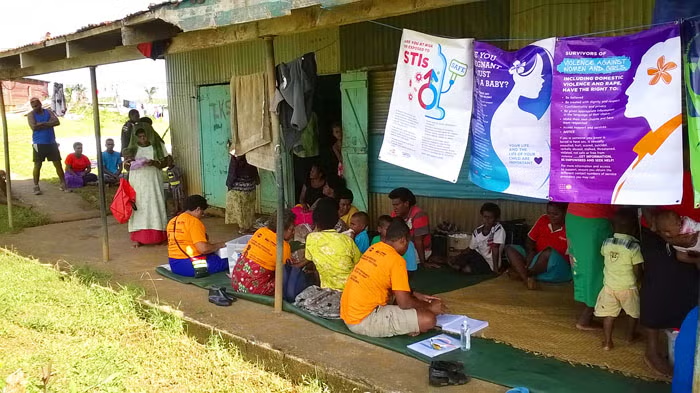
The Western Division's outreach program officially closed a week ago May 27; the Northern Division end today (May 3).
National Family Health Advisor Dr Torika Tamani hailed the exercise which was also supported by UNICEF a success. Dr Torika expressed her sincere gratitude to the mobile clinic outreach teams for delivering essential health services when communities were still reeling from the impact of the cyclone.
"Rain hampered their first week but spirits remained high and I am extremely grateful to the teams; they enjoyed themselves but there were also challenges, some of them had never been on horseback but they had to, to ensure they reached the hard-to-reach communities," Dr Torika said.
"I am also very thankful to UNFPA for financing the reengagement of retired midwives, very much needed on an integrated team like the outreach teams we had to put together - some had to sleep it rough, sleep in tents."
Divisional medical officer western Dr Susana Nakalevu was very impressed with the reports she heard from the three teams (Ra Coastal, Ra Highlands and Ba) which comprised the Western Division mobile clinic outreach programme.
With the Western Division suffering extensive damage leading to changing priorities, the Family Health Unit led the mobile clinic outreach response work on the ground which Dr Nakalevu said worked out very well as they had to prioritise getting health facilities fully operational.
"We also thank you so much for bringing in the retired midwives, we really needed their expertise in the area of reproductive health care," Dr Nakalevu said.
"I really thank the midwives for sacrificing their time with their children and family to be part of a team which had to sleep in tents, cross rivers, rough terrain, having to ride horses - now that was public health at its most intense."
After listening to reports from the teams in a gathering in Lautoka Friday last, Dr Nakalevu said she felt it may be prudent to re-look at the way public health was being provided at the moment.
Considering population and development dynamics, Dr Nakalevu said the present method of relying on their zone nurses may have to be reviewed, particularly in light of the results the mobile clinic outreach teams returned with.
Dr Patemo Vainitoba who was team leader of the Ra Highlands team of four said the people in the areas they reached were very appreciative of a medical team which was able to offer a range of services at a time when their personal priorities was food, shelter and water.
"Health was not their priority so they were very happy that it was brought to them - general outpatients was ongoing, midwives looked after antenatal mums, family planning so they gave out pills, condoms and injectable, nutritional status, and so on," Dr Vainitoba said.
"The mobile clinic outreach programme was very useful, it met a need and it should be incorporated into divisional hospitals, it should be ongoing and we don't have to wait for a disaster but need to be sponsored."
At the gathering of the official closer, the outreach teams were briefed further by UNFPA staff on the use and storage of the 12 types of inter-agency reproductive health kits, nine tonnes of supplies, which were handed over to the Ministry of Health and Medical Services at the beginning of the health response.
UNFPA Pacific Director and Representative Dr Laurent Zessler commended the medical staff for their tenacity and determination to deliver essential health services to hard-to-reach communities.
"As a development agency which contributed to the health response of the Government of Fiji after Cyclone Winston, UNFPA is very proud of the achievements of our partners particularly the Ministry of Health and Medical Services in the area of public health through mobile clinic outreach teams," Dr Zessler said.
"The results speak for themselves: the concept of this integrated outreach medical team post-disaster does meet a great need by whole communities; we are particularly very happy for women and adolescent girls who were reached and were able to use the services."
